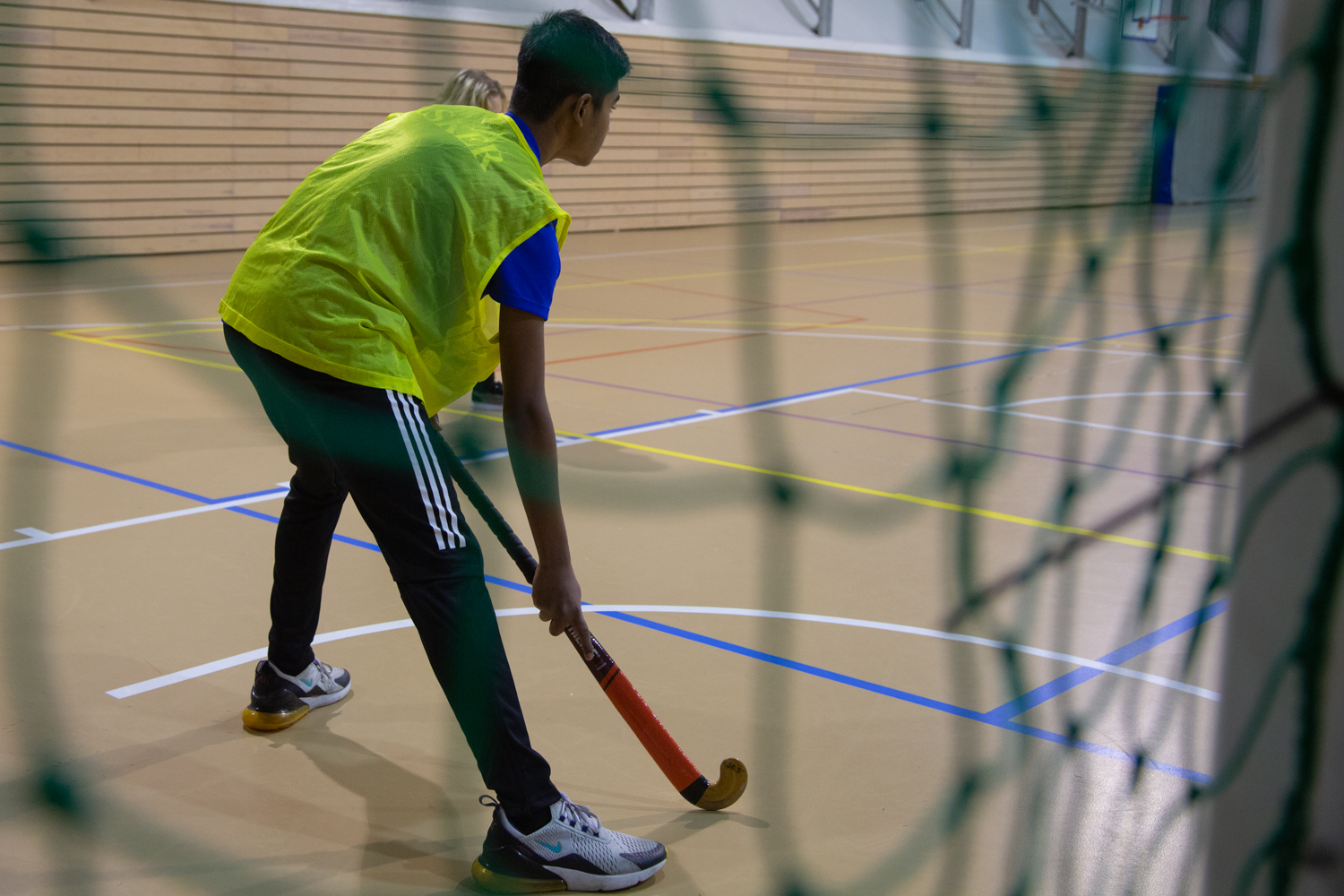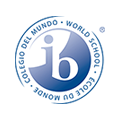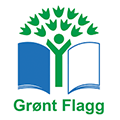At Asker International School, it is important that teachers embody and model the Learner Profile to the students, colleagues, parents and the wider community. AIS therefore encourages teachers to be effective communicators, critical thinkers and principled lifelong learners who take on a shared responsibility when reviewing school policies and essential agreements. In alignment with our school vision ‘Developing Global Citizens for the World of Tomorrow’ we ask teachers to be inquirers and risk takers when it comes to being curious about improving and implementing the policies. It is important that staff members remain open minded and caring while ensuring to see others' perspectives in a respectful and professional manner. By being knowledgeable of all the policies and essential agreements it helps teachers to have a balanced understanding of how AIS operates. By being reflective as an educator this helps our school community strive towards our vision.
Assessment Policy
(Date reviewed May 2023)
i) Philosophy
Assessment is the act of evaluating, appraising, and/or estimating the features, qualities, performances, and needs of individuals, programs, and institutions. The main goal of assessment is to support and enhance student learning. Every student has individual abilities, skills and knowledge. Assessment should support learning and will be planned in advance to reflect the content being instructed. Assessment shall take a variety of forms and present students with continuous opportunities to demonstrate ability. Assessment shall also be used to influence the design of the curriculum and be used to influence the progression of units. Students shall receive timely feedback on assessments completed and parents will be informed as and when appropriate. Assessment shall be reflected on by both the teacher and student.
ii) Purpose of Assessment
-
Formative assessment can also be defined as diagnostic testing and is ongoing. The purpose of formative assessment is to guide and influence the teaching that takes place in the classroom to ensure that learning is also taking place. Formative assessment can include quizzes, worksheets, oral feedback, presentations and many other forms that are used to enrich the learning experience. Formative assessment provides the teacher with the necessary information to help them provide scaffolded support for students in the classroom.
-
Summative assessment summarises a students performance and ability at a specific time. Summative assessment can also be diagnostic and used to influence the formative assessment that takes place in the classroom. Summative assessment takes place for example at the end of units, or at the end of a specific discipline being instructed. All subjects in the MYP assess against 4 criterion as per the IB guidelines. Each strand within the criteria is assessed a minimum of twice a year. Information pertaining to this coverage is located in the Strand Tracker Document available on the shared drive.
iii) Parent Progress Meetings
Parents are entitled to a minimum of two parent - teacher conferences in an academic year.
PYP
MYP
Two meetings, one in the autumn and the other in the spring with subject teachers. This could amount to approximately 18 conferences in an academic year.
School procedure also dictates that a parent can request a conference with the teacher at any other time of their choosing.
iv) Student Progress Meetings
Students are entitled to a minimum of two teacher - student conferences in an academic year.
PYP
Homeroom teacher in preparation for student led conference (March)
§ 3-7.Samtale om utvikling
Elevar har minst ein gong kvart halvår rett til ein samtale om deira utvikling i faga. Samtalen kan gjennomførast i samband med samtalen med foreldra etter § 4-2 og 4-3.
Elevar har òg rett til jamleg dialog med kontaktlærar om sosial utvikling og anna utvikling. Samtalen skal sjåast i samband med friskolelova § 1-1 og læreplanen skolen har fått godkjend etter friskolelova § 2-3.
§ 3-12.Halvårsvurdering i fag
Halvårsvurdering i fag er ein del av undervegsvurderinga. Den skal vise kompetansen eleven har i faget, og gi rettleiing om korleis han eller ho kan auke kompetansen sin. Elevar skal få halvårsvurdering utan karakter gjennom heile opplæringsløpet.
Frå 8. årstrinn skal elevar i tillegg ha halvårsvurdering med karakter. Halvårsvurdering med karakter skal vere skriftleg og gi uttrykk for den kompetansen eleven har nådd ut frå det som er forventa på tidspunktet for vurderinga. Vurderinga skal givast midt i opplæringsperioden, og ved slutten av opplæringsåret for fag som ikkje blir avslutta. I fag med fleire standpunktkarakterar gir læreplanane informasjon om talet på karakterar i halvårsvurderinga.
Faglærar gjennomfører halvårsvurderinga for elevar.
§ 4-2.Kontakt med heimen i grunnskolen
Skolen skal halde kontakt med foreldra gjennom opplæringsåret.
Skolen skal i starten av kvart opplæringsår halde eit foreldremøte der foreldra informerast om skolen, innhaldet i opplæringa, medverkinga til foreldra, rutinar og anna som er relevant for foreldra.
Foreldra har minst to gonger i året rett til ein planlagd og strukturert samtale med kontaktlæraren om korleis eleven arbeider dagleg, og eleven sin kompetanse i faga. I tillegg skal kontaktlæraren samtale med foreldra om den sosiale utviklinga og anna utvikling hos eleven. Samtalen skal klargjere korleis eleven, skolen og foreldra skal samarbeide for å leggje til rette for læringa og utviklinga til eleven. Eleven kan vere med i samtalen med foreldra. Når eleven har fylt 12 år, har han eller ho rett til å vere med i samtalen. Samtalen kan sjåast i samanheng med samtalen med eleven etter forskrifta § 3-7.
Foreldra skal få munnleg eller skriftleg:
|
a.
|
varsling om eleven sitt fråvær
|
|
b.
|
varsling dersom det er fare for at det ikkje er grunnlag for vurdering i fag, orden og oppførsel eller fare for at eleven kan få karakteren nokså godt eller lite godt i orden eller oppførsel, jf. § 3-7
|
|
c.
|
informasjon om eleven og foreldra sine rettar og pliktar etter friskolelova og forskrifta
|
|
d.
|
anna viktig informasjon om eleven, med mindre denne er underlagt teieplikt etter anna lovgiving.
|
MYP
Homeroom teacher/co-tutor
Subject teachers summative assessment feedback
Minimum one conference per child per academic year.
Grade 6-10
Service and Action progress conferences occur as part of the student leadership programme.
Grade 10
Personal Project progress conferences. Three mandatory conferences take place per annum. Two conferences are embedded into personal project days and one conference is to provide feedback on the final submission.
SEN
MYP SEN students also receive two teacher - student conferences as part of IEP review
v) Reporting
Reporting will take place at the end of each term bi-annually, at the end of the first term in December and at the end of the school year. Reporting will take place digitally, through an online reporting system known as ManageBac. For the PYP two reports are completed by the homeroom teacher and one report is completed by specialist teachers. For the MYP a data report is provided in December and a written report at the end of the school year. All reports will be stored using Managebac, the school’s management system.
Alternative requirements
In some cases reasonable adjustment may occur to cater for students with additional learning needs/additional language needs. Examples include but not limited to: access to additional time; extensions; flexibility in method of response, coloured overlays, and a magnifying glass.
Possible Scenario: A student with dyslexia
If a student is undertaking an external assessment the following documents must be referred to:
vi) MYP subject assessment criteria
The following assessment criteria have been established by the IB for the MYP. At Asker, all summative assessment in the MYP is based on these assessment criteria. For each assessment criterion, a number of strands are defined. These describe a range of achievement levels.
| |
A
|
B
|
C
|
D
|
|
Language and Literature
|
Analysing
|
Organizing
|
Producing text
|
Using language
|
|
Language Acquisition
|
Comprehending spoken and visual text
|
Comprehending written and visual text
|
Communicating
|
Using language
|
|
Individuals and Societies
|
Knowing and understanding
|
Investigating
|
Communicating
|
Thinking critically
|
|
Sciences
|
Knowing and understanding
|
Inquiring and designing
|
Processing and evaluating
|
Reflecting
|
|
Mathematics
|
Knowing and understanding
|
Investigating patterns
|
Communicating
|
Applying mathematics in real-world contexts
|
|
Arts
|
Knowing and understanding
|
Developing skills
|
Thinking creatively
|
Responding
|
|
Physical and health education
|
Knowing and understanding
|
Planning for performance
|
Applying and performing
|
Reflecting and improving performance
|
|
Design
|
Inquiring and analysing
|
Developing ideas
|
Creating the solution
|
Evaluating
|
|
MYP projects
|
Investigating
|
Planning
|
Taking action
|
Reflecting
|
|
Interdisciplinary
|
Disciplinary grounding
|
Synthesizing and applying
|
Communicating
|
Reflecting
|
Moderation/Standardisation
A moderation process must occur for all MYP summative assessments.Due to the importance of summative grades on a students final graduation grade, additional internal & external independent moderation may occur from time to time.
Additional Documentation:
-
Access and Arrangement Policy
-
Essential Agreement: Feedback
-
PYP Scope and Sequences
-
PYP Essential Agreement: Student Portfolios
-
MYP Subject Guides
-
General regulations middle Years programme
-
Candidates with assessment access requirements






